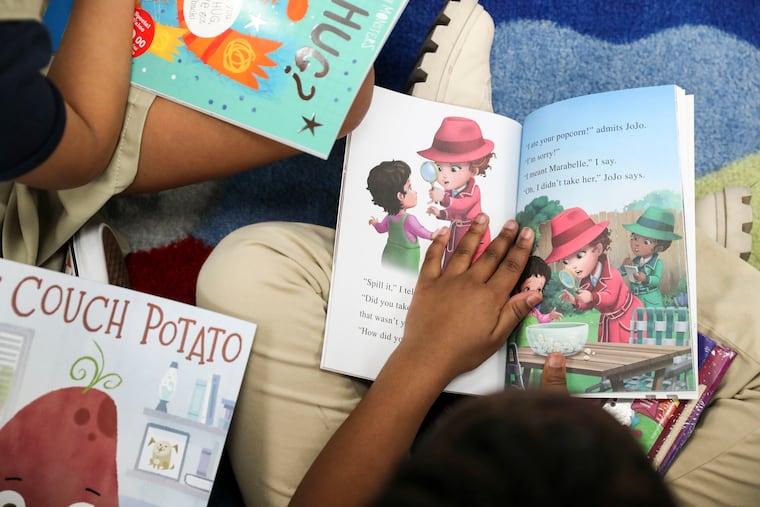Scholastic backtracks on separating diverse books following public backlash
Scholastic Books announced this week it won't separate books that celebrate diversity anymore, following backlash about censorship and pandering to far-right legislation.

Scholastic Books won’t separate its books that celebrate diversity at book fairs after all.
The children’s book publishing company announced that it was reversing course on a previous call to separate books dealing with race and gender into a collection that elementary schools could opt out of when hosting book fairs this week.
The company said its Share Every Story, Celebrate Every Voice collection was meant to assist schools that wanted to host book fairs but were grappling with recent waves of legislation that limit how gender and identity are taught in classrooms. Critics said the partitioned collection pandered to extreme-right “anti-woke” culture and set a dangerous precedent.
Several advocacy groups — including the National Black Justice Coalition, the Children’s Defense Fund, Color of Change, and PEN America — urged Scholastic to reverse its decision to segregate the books.
Now, the company is apologizing and the diversity collection is being phased out.
» READ MORE: Scholastic Book Fair will let schools opt out of collection that celebrates diversity
“Even if the decision was made with good intention, we understand now that it was a mistake to segregate diverse books in an elective case,” Scholastic president Ellie Berger said in a letter addressed to authors and illustrators that was obtained by media outlets. “We recognize and acknowledge the pain caused, and that we have broken the trust of some of our publishing community, customers, friends, trusted partners, and staff, and we also recognize that we will now need to regain that trust.”
Berger said that Scholastic would discontinue the diversity collection in January and that the company is working on a “pivot plan” for book fairs already planned for this fall.
Scholastic went public with its apology on Wednesday.
“We understand now that the separate nature of the collection has caused confusion and feelings of exclusion,” the company said in a statement. “We are working across Scholastic to find a better way.”
The diversity collection featured 64 books, including National Youth Poet Laureate Amanda Gorman’s book, Change Sings, and stories with diverse and LGBTQ characters.
Scholastic initially said the move was unavoidable, citing state laws and book bans nationwide that scrutinize books that address race, civil rights, gender identity and expression, LGBTQ themes, or topics centering around diversity and marginalized groups. Many state laws use intentionally vague language and put the onus on the educators to decide what books comply with regulations, threatening teachers’ jobs if certain books are taught or found in classrooms.
As noted by Education Week, the laws led to at least 3,300 instances of book bans in U.S. public schools and libraries in the 2022-23 school year and the removal of more than 1,500 titles from students’ access, according to PEN America data. In Pennsylvania, book bans are not as widespread as in other states. Still, the Central Bucks and Pleasant Valley School Districts have both placed books under review in the last year.
Advocacy groups such as PEN America and Color of Change are lauding Scholastic for pivoting.
“Scholastic recognized that as difficult a bind as this pernicious legislation created, the right answer was not to become an accessory to censorship,” Jonathan Friedman, the director of its Free Expression and Education program, said in a statement. “Scholastic is an essential source of knowledge and a delight for countless children. We are glad to see them champion the freedom to read.”